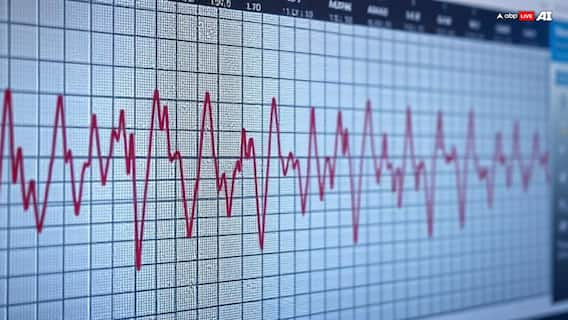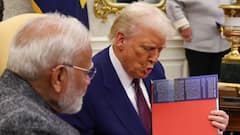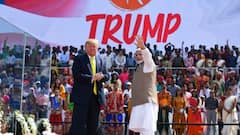Cash-Strapped Pakistan To Hike Petrol Price For Next Fortnight: Report
The report said the increase can jump up to PKR 14 per litre if the government also adjusts the exchange rate losses

Cash-strapped Pakistan is planning to put more economic burden on its people, according to local media reports. The Pakistani government is set to hike prices of petroleum products by PKR 10-14 per litre during the next fortnight, reported news agency PTI.
The agency cited a report by The News International saying the federal government may increase the price of petroleum products attributing to rising oil prices in global markets.
The report said the increase can jump up to PKR 14 per litre if the government also adjusts the exchange rate losses. In the previous review, the government didn’t pass on the impact of the Pakistani Rupee devaluation to the people.
For the upcoming price review with the currency rate loss adjustment, the country's oil industry says that the ex-depot price of petrol has come in at PKR 14.77 a litre. Petrol is now priced at PKR 272, but if the government decides to pass along the effects of rising oil costs and exchange rate losses, that price may rise to PKR 286.77 per litre. Due to rising global oil costs, the government would still have to raise the price of gas even if it didn't adjust for exchange losses. Based on the current tax rate, an increase in the price of petrol is anticipated, the report added.
The government charges a PKR 50 per litre levy on petrol with zero general sales tax. The report said that based on a PKR 5 per litre exchange loss adjustment by Pakistan State Oil (PSO) the predicted increase in the price of gasoline is based on this adjustment. The state-owned firm previously failed to incorporate exchange rate changes to keep fuel prices on the low side.
According to the report, the Pakistan Oilfields Limited prices would have been on the higher side after a massive depreciation of the Pakistani Rupee against the dollar in the last two and half months when under International Monetary Fund (IMF) conditions, the market-based exchange rate was allowed.
On the other hand, the price of high-speed diesel (HSD) will likely remain unchanged in the next review of prices as the current ex-depot price of HSD is also the same compared to the working for the next fortnightly price of diesel, the report added.
Also Read: China Calls US Sanctions On Chinese Firms 'Illegal' Move, Endangers Global Supply Chains
However, it is likely that this price will remain the same because the current ex-depot price of high-speed diesel (HSD) is the same as the working price of diesel for the upcoming fortnightly review of prices.
“The diesel price may come down by Rs 15 per litre if the government doesn’t adjust the exchange rate loss," the newspaper quoted sources as saying.
In the recent review of prices, the government increased the petroleum levy on HSD to PKR 50 per litre under IMF recommendations and levied no GST on it. The sources claim that even if those in the oil industry are witnessing an increase in petrol prices but no change in HSD, the government's decision is ultimately what matters, the report said.
In the current situation, it added, the government has no choice but to raise the price of petrol because its financial resources are already limited. They also added that the government is making frantic attempts to reactivate the IMF plan to strengthen the foreign exchange reserves.
Trending News
Top Headlines











































